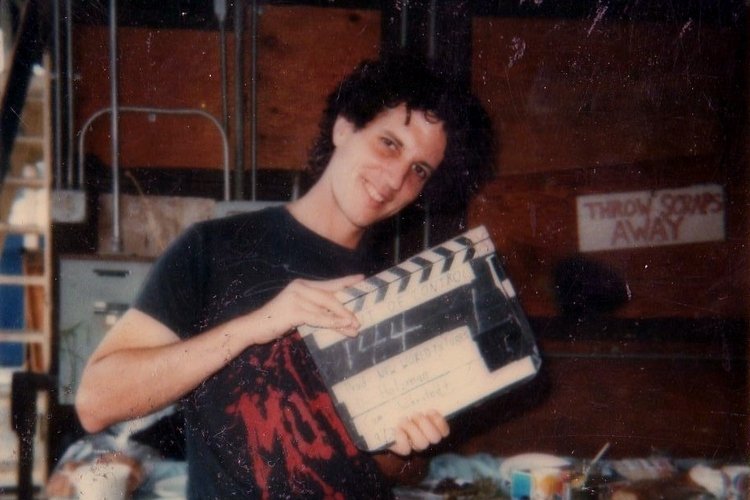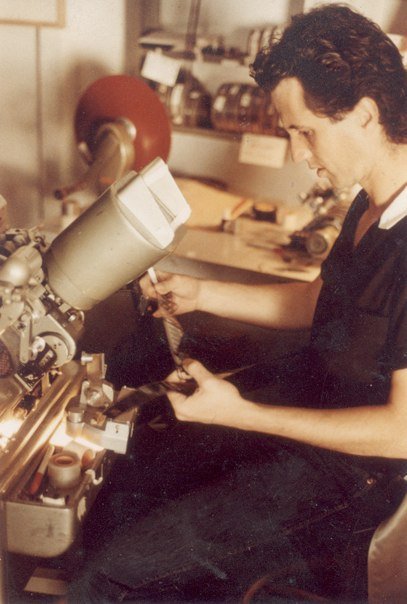CELLULOID WARS 2: Dispatches From The Belly Of The B-Movie Beast
When discussing the most entertaining movies from the Corman era of New World Pictures, Schlockmania always includes Forbidden World. This budget-conscious riff on Alien brings a funky, artsy energy to how it fulfills its exploitative mandate, covering all the b-movie bases but doing so in a manner that adds some unexpected edge to the proceedings.
A while back, Shout Factory delivered a nice special edition of the film that incorporated input from director Allan Holzman in documenting its path to the big screen. However, there are limits on how deep even a special edition release can go and now Holzman has revisited the history of Forbidden World on his own via a new book entitled Celluloid Wars 2: Forbidden World.
The result is a deep-dish account of life in the b-movie trenches circa 1981/1982, all from the vantage point of the person who fought the hardest to make what ended up on the screen. Holzman reveals how willing he is to lay all his cards on the table via a prologue in which he speaks frankly about his lifelong struggle with stuttering, the childhood traumas that contributed to the condition and how it has shaped his life and career as a filmmaker. He cover all that territory with uncompromising courage and a dash of deadpan wit, thus setting the tone for what will follow.
The bulk of the book is taken from journals that Holzman meticulously kept all the way from pre-production through the final phase of editing. Those entries make an eye-opening read for b-movie buffs: there's a big difference between having a theoretical understanding that exploitation filmmaking is a struggle and actually seeing how the day-to-day grind of it plays out.
As the days roll by, you see how even while working at a low-budget level, Holzman faced the same challenges that Hollywood directors face: dealing with studio executives concerned with speed and cost, having to massage the egos of name stars, the thorny and emotionally complex issue of getting actors to do nude scenes, dealing with sudden curveballs related to locations and special effects and, most importantly, fighting to protect one's directorial vision while dealing with editorial interference from test screenings and overzealous executives.
Along the way, you get an interesting and complex portrait of Roger Corman in his phase as a mini-mogul at New World. He still had considerable filmmaking smarts - he was the rare executive who could direct an editing session - and was willing to gamble on new talent in a way that even today's microbudget producers wouldn't be willing to do. However, moving to the mogul's chair made him favor profits over adventurous filmmaking, something illustrated in a grueling stretch of the book where Corman forces Holzman to edit out deliberately humorous bits from the film after they get (intended) laughs at a preview screening.
Throughout Celluloid Wars 2, Holzman reveals a voice that is intelligent and thoughtful in a way you wouldn't expect from a director of low-budget genre fare. For instance, it's strangely impressive to read how the theories of Wilhelm Reich influenced his approach to Forbidden World's narrative or how he tries out a Roman Polanski directing technique at the suggestion of lead actor Jesse Vint to enliven a lengthy group dialogue scene. If you've ever made your own films, even shorts, you'll relate to the earnest, soul-searching tone of his entries as he questions himself, his skills and his motivations throughout the process in hopes of making his film better.
The end result is doubly rewarding, giving you all the fly-on-the-wall details behind the scenes of a exploitation favorite and also bringing you into the mindset of what it's like to preside over the creation of such a film. As a bonus, you also learn about a major studio film he almost made with a famous Hollywood vet and some harrowing tales of the tormented production process for Holzman's second feature, Out Of Control, and how its chaos led him to improve his life.
To sum up, Celluloid Wars 2 is a great read for any fans of New World Pictures or exploitation film history in general - and it's all the more satisfying because Holzman brings depth and intelligence to his chronicle that reminds you serious artistic thinking can exist anywhere, even at the drive-in.




